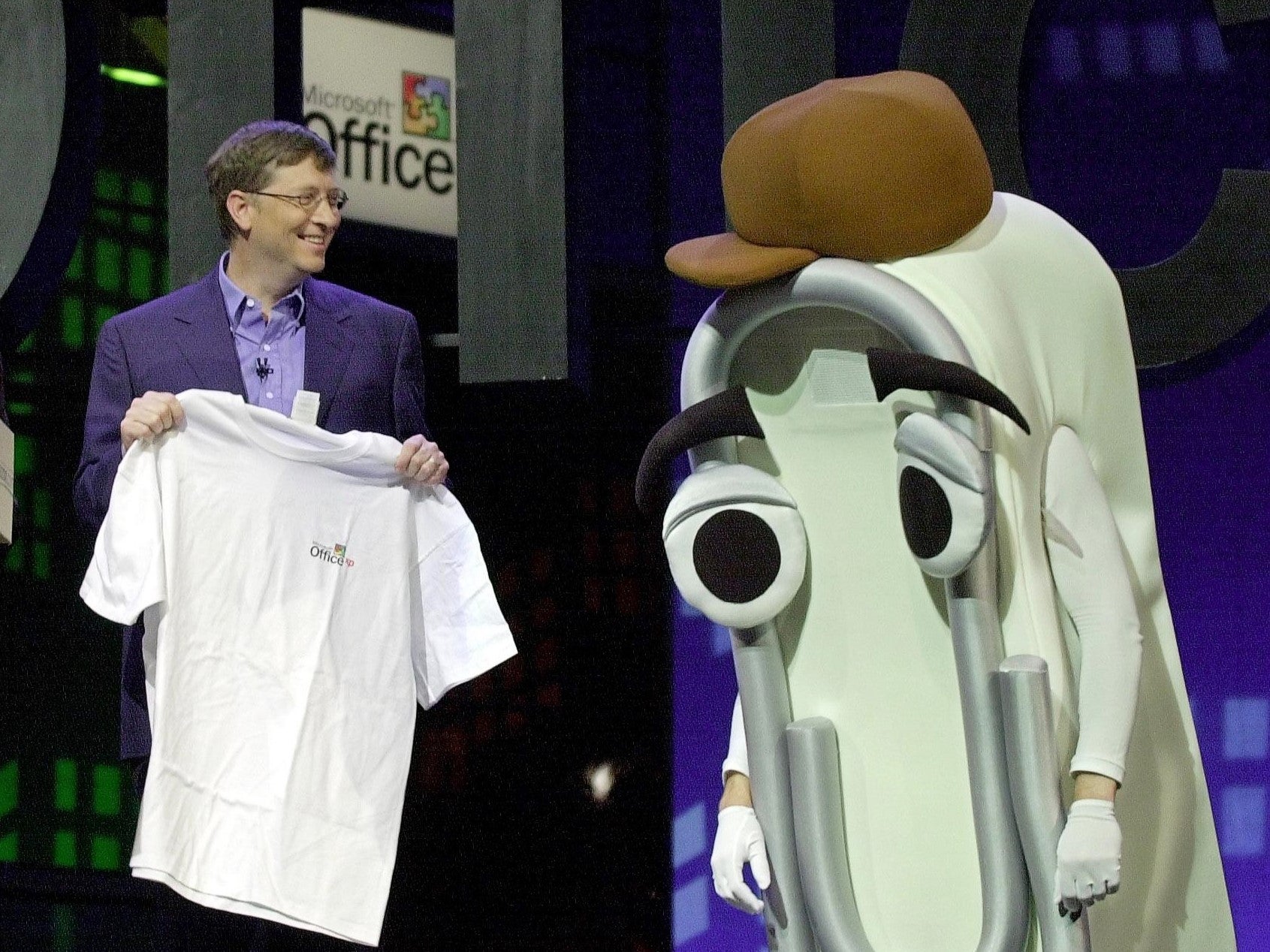Bing could finally be better than Google – but it still won’t be more popular, experts say
‘We’re witnessing the fastest industrial revolution in history,’ says one commentator

The new AI-enabled Bing is Microsoft’s biggest ever play to take on Google, yet experts warn it is unlikely to even make a dent in the search giant’s dominance.
Microsoft said the artificial intelligence, which is based on the same technology underpinning the viral ChatGPT chatbot, will serve as an “AI copilot”. It is designed to assist people in their searches, like a souped-up version of its paperclip character Clippy that Word users may be familiar with.
“AI will fundamentally change every software category, starting with the largest category of all: search,” Microsoft CEO Satya Nadella said during a press event on Tuesday, having previously said that AI will soon impact “everyone, no matter their profession... for everything they do”.
It is the first tangible product to come from Microsoft’s investment in OpenAI of $10 billion – a figure 20 times greater than what Google paid to acquire OpenAI rival DeepMind.
Google’s AI division is still one of the world’s leading AI research units, yet it remains cautious about launching its powerful tools as standalone products. DeepMind boss Demis Hassabis revealed last month that its own Sparrow chatbot, which he claims can do things that ChatGPT cannot, would not be released immediately due to the potential dangers of advanced artificial intelligence.
Google’s in-house chatbot Bard, which was announced the day before Microsoft launched its OpenAI search integration, is also not being released publicly. Google CEO Sundar Pichai said the company would instead first be working to weave AI features into Google’s existing search tools.
SEO experts are betting that this approach will be enough to stave off Microsoft’s challenge, especially considering Google remains the default search engine for the majority of web users.
“Everyday search users won’t know [about this update], so Bing would have to pair the release of this feature with a huge investment in marketing to let people know. Even if Microsoft did this, would people leave the comfort of Chrome for slightly more convenient answers? Bing won’t have the time needed to ‘steal’ market share from Google, as the playing field will soon be even again,” said Collum McCormick, an SEO expert at Embryo.
“At the end of the day, it will take ‘effort’ to transition from Chrome to Microsoft Edge, which means most people wouldn’t switch unless the benefit was huge. Google has obviously been threatened by this, hence the retaliation, but now I feel like the change that Microsoft Edge will make just won’t be big enough to make people switch.”
Google’s market dominance is so complete that the company’s name has become a synonym for search, however it faces other existential threats to its near-monopoly status beyond just artificial intelligence.
Antitrust laws mean Apple and other smartphone makers may soon need to drop Google as the default search engine from Safari and Chrome browsers – Google is currently dealing with lawsuits in both the US and Europe. This would open the door for a competitor with better functionality to make a serious challenge.
This could well be an AI version of Microsoft’s Bing or Edge. The OpenAI investment could well prove useful across other Microsoft businesses that most people do not see.
“It’s no surprise that the two largest software companies in the world are racing to develop and release their own generative AI solutions. We’re witnessing the fastest industrial revolution in history,” said Rodrigo Liang, CEO of AI startup SambaNova Systems.
“While Google and Microsoft have their eyes on the consumer market, and especially search, we mustn’t forget the enterprise software market which is ripe for transformation... Foundation models based on generative AI will revolutionise these businesses.”

Join our commenting forum
Join thought-provoking conversations, follow other Independent readers and see their replies
Comments